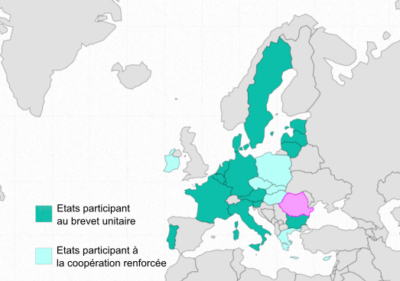The purpose of this communication from Brandon IP, in its capacity as an intellectual property consultant, together with Brandon Valorisation, valuation strategy consultants, is to draw your attention to the tax aspects to be observed in the event of a contribution in kind of an intangible intellectual property asset to your company.
Patents or software
Taxation on capital gains applies when a patent or software is transferred to a company. This type of contribution constitutes a transfer of assets.
Transfer of a patent or software by an individual to a company
The capital gain realized on this transaction may be taxable. In France, certain finance laws provide for a specific tax regime for the transfer of patents and software to a company, allowing the payment of the capital gain to be deferred for a period and under conditions set by the tax authorities.
The financial valuation of the intangible asset(s) to be transferred must be carried out by a duly registered expert. This expert will be the contact person for the contributions auditor, who will have to intervene.
The contribution of a patent or software by one company to another company
When a company transfers a patent or software to another company as part of an asset transfer transaction, any capital gains that may be assessed before the transfer are due. However, a company may be exempt from corporation tax under certain conditions, including the length of time the shares must be held, a minimum level of shareholding, etc.
Here again, the value of the patent or software must be determined by an expert firm, which will be liable for the content of its valuation report.
Important: If you have any questions about taxation, we recommend that you consult a tax expert, who will be able to help you with the process.

Trademark or design
Transfer from an individual to a company
When an individual contributes a trademark or design to a company in exchange for shares in the company, this can be considered to be a transfer of assets. The capital gain realised on this transfer is generally taxable. However, there may be exemptions or tax deferral schemes in certain situations.
It is advisable to have the brand valued by an asset valuer to determine its fair value.
Transfer of a trademark or design from one company to another
This type of transfer is generally subject to the tax rules applicable to the transfer of assets. Unrealized capital gains arising from the contribution are therefore due. However, in certain cases, the transferring company may be exempt from corporation tax on the capital gains. Among the conditions to be met are that the contribution must be made in exchange for shares in the recipient company, that the recipient company must retain the trademark for a minimum period, and so on.
In this case, as in the others mentioned here, we recommend that you seek the advice of a tax expert, who will be able to provide you with useful support in this process.
Know-how
Transfer of know-how from an individual to a company
As in the above cases, the contribution of know-how by an individual to a company may be made in exchange for securities (shares, etc.). Other forms of remuneration may be provided, depending on the contribution strategy chosen.
Whatever the terms of the contribution, the know-how must be valued professionally and objectively. A valuation by an expert is recommended, who will be responsible for answering the questions of the contribution auditor.
If the know-how is contributed in exchange for shares in the company, this may increase capital. The tax consequences of this will vary depending on the nature of the company and the tax regime applicable to it.
Manufacturing processes, chemical compositions, and certain human skills, among other things, can be considered as know-how.
In most cases, the value of the know-how at the time of contribution is significantly higher than its initial value (when it was created). In such cases, the transfer is subject to capital gains tax. This capital gain is generally taxable.
Here again, we recommend that you consult a tax expert, who will be able to provide you with useful information and, if necessary, assist you with the transfer of the know-how.
Transfer of know-how from one company to another
This type of transfer is usually subject to the tax rules applicable to transfers of assets. The resulting capital gains fall within the scope of current tax regulations.
As with other contributions in kind, it is essential to determine the value of the know-how accurately. A valuation by an expert is necessary to establish this value. He or she will be the competent contact for the contributions auditor.
If the transferring company realizes a capital gain on the transfer of the know-how (i.e. if the value of the know-how exceeds its historical cost), this capital gain may be taxable.
The know-how contribution transaction must be properly documented and formalized, particularly towards the tax authorities.
Certain contributions in kind may be subject to specific tax exemptions. These exemptions are designed to facilitate the reorganization of companies and avoid immediate taxation. A qualified tax advisor will be able to inform you fully about these provisions and, if necessary, assist you with these transactions, for which we recommend that you take the utmost care.
In conclusion
In our capacity as Intellectual Property Attorneys and Innovation Strategy and Development Consultants with Brandon Valorisation, we hope to provide you with useful information for structuring your company’s development, including information on taxation relating to the contribution of intangible assets.
Other intangible assets can be contributed in kind, so don’t hesitate to consult us and ask us to help you realize your development projects through innovation.





